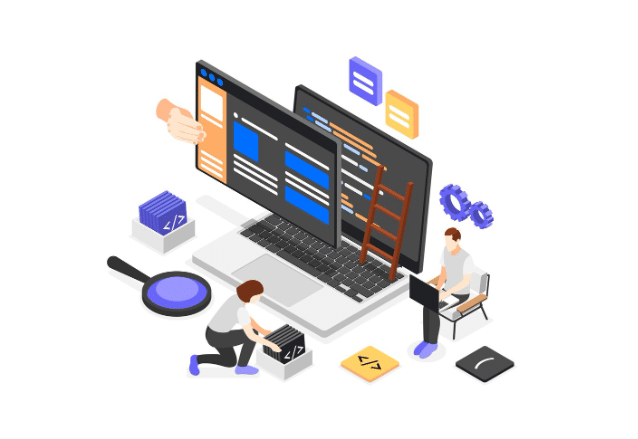How Technology Has Left Traditional Performance Review Systems Behind

Do you remember when yearly performance reviews meant piles of paperwork, rushed last-minute meetings, and awkward conversations that no one enjoyed? Fortunately, those days are quickly becoming a thing of the past. Thanks to advancements in technology, the way companies approach employee development, feedback, and performance evaluations has changed dramatically—and the momentum isn’t slowing down.
Today, organizations are demanding faster, smarter, and more efficient ways to support and grow their teams. With the power of data, mobile accessibility, real-time feedback, and automation, a new standard is taking shape, leaving outdated and inefficient processes behind. It’s time to take a closer look at how technology has completely transformed workplace evaluations—and why this evolution is not only necessary but something we should genuinely celebrate.
Real-Time Feedback Replaces Annual Reviews
Waiting an entire year to give or receive feedback doesn’t work anymore. With new digital tools, managers and employees can share real-time updates, suggestions, and praise. This quick communication keeps small issues from growing and helps teams improve faster. Instead of one big review that feels overwhelming, feedback becomes a normal, easy part of everyday work life. Teams stay aligned, and employees get the support they need when it matters most, not months later.
Data-Driven Insights Enhance Decision Making
Advancements in technology have helped companies move beyond relying solely on personal opinions for performance evaluations. Today, intelligent tools collect and track real-time data to reveal important trends, individual achievements, and areas that need improvement. This shift enables organizations to make better, fairer, and more objective decisions grounded in facts rather than instinct. The 2025 State of Performance Management report emphasizes how businesses are leveraging data to personalize feedback and employee development strategies. By depending on accurate, real-world information, companies can make smarter decisions, strengthen their teams, and provide more meaningful support for employee growth at every level, leading to a more dynamic and successful workplace overall.
Mobile Platforms Make Reviews Accessible Anywhere
Today’s teams aren’t always sitting in one office. Remote work and flexible schedules are more common than ever. Mobile platforms make it easy for employees and managers to check in, update goals, or complete review tasks from anywhere. Whether working from home or on the go, no one is left out of important discussions. With just a smartphone or tablet, people can stay connected and involved in their development without missing a beat. This level of access simply wasn’t possible with old-fashioned paper systems.
Automation Saves Time and Reduces Bias
Managing review schedules, reminders, and follow-ups manually is time-consuming and prone to errors. Modern platforms automate these tasks, streamlining the process and reducing administrative burdens. Automation also helps minimize unconscious biases by standardizing evaluations and ensuring consistent criteria are applied to all employees. This leads to a fairer and more balanced experience across the organization. By leveraging automation, companies can focus more on meaningful feedback and employee development rather than getting bogged down by repetitive administrative tasks.
Cloud-Based Systems Offer Scalability and Flexibility
Older review systems often struggled to keep up when a company grew. Expanding teams meant even more paperwork and disorganization. Cloud-based platforms fix that by making it easy to add new employees, track changes, and store information safely online. Managers and HR teams can access everything they need from any device at any time. Growth no longer causes chaos; it’s simple and scalable. Cloud technology gives businesses the flexibility to manage their workforce, no matter how fast they expand.
Customizable Review Processes Fit Individual Needs
Traditional review systems often imposed a uniform approach, disregarding different organizations’ unique structures and cultures. Modern platforms have transformed this by offering customizable templates and workflows. Companies can tailor evaluation criteria, feedback cycles, and goal-setting processes to align with their needs. This flexibility ensures that assessments are more relevant and effective, fostering a culture of continuous improvement and engagement. By adapting the review process to fit individual organizational requirements, businesses can better support employee development and drive overall success.
Integrations with Other Workplace Tools Enhance Efficiency
Performance data was often siloed in the past, making it challenging to get a comprehensive view of an employee’s contributions. Today’s software solutions integrate seamlessly with various workplace tools like project management systems, communication platforms, and HR databases. This interconnectedness allows for real-time data sharing and analysis, providing managers with a holistic understanding of team dynamics and individual achievements, thereby facilitating more informed decision-making.
Advanced Analytics Predict Future Outcomes
Traditional evaluation methods often rely solely on past data, which may not provide a complete picture of future potential. Modern analytics tools utilize machine learning algorithms to identify patterns and forecast trends. These tools can predict potential challenges and opportunities by analyzing factors like engagement levels, skill development, and project outcomes. This proactive approach enables organizations to implement targeted interventions, supporting employee growth and organizational success. Embracing advanced analytics allows for more informed decision-making and a forward-looking strategy in workforce development.
Focus Shifts from Ranking Employees to Developing Them
Traditional systems often emphasized ranking employees, which could foster unhealthy competition. The contemporary approach prioritizes individual development over comparative evaluation. Organizations encourage a more supportive environment by focusing on personalized growth plans, skill enhancement, and continuous feedback. This shift boosts morale and aligns employee aspirations with company goals, leading to increased productivity and job satisfaction.
Employee Experience and Engagement Are Prioritized
Employee engagement is crucial for retention and overall performance. Modern review systems are designed with user experience in mind, offering intuitive interfaces and personalized dashboards. Features like real-time feedback, goal tracking, and recognition programs contribute to a more engaging and transparent process. By involving employees in their development journey, organizations foster a sense of ownership and motivation, which translates into better performance and reduced turnover.
Technology has undeniably transformed the landscape of employee evaluations. From customizable processes and integrated tools to predictive analytics and enhanced user experiences, modern systems address the limitations of traditional methods. Embracing these innovations streamlines administrative tasks and fosters a culture of continuous development and engagement. Organizations that adapt to these changes are better positioned to support their workforce and achieve sustained success.

Top 10 IT Certifications That Actually Boost Your Salary in 2026

Amazon Ads vs. Google Ads: Which Platform Drives Better eCommerce Sales?

Where to Buy a Passport Online for Uninterrupted Global Travel


